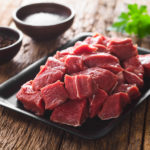By David Blyweiss, M.D., Advanced Natural Wellness
Whether it’s due to a sleepless night or an overly-packed schedule, there are always those inevitable days when your energy seems to vanish into thin air.
Before you reach for a cup of coffee or overly-caffeinated energy drink to help you muddle through the day, try my healthy strategy for staying awake: Snack on fatigue-fighting foods.
Are You Suffering From...
- Love handles and a pot belly
- Romance that isn't what it used to
- Forgetfulness and inattention
- Low (or no) strength and endurance
- A sex drive that's shifted into neutral...or worse
If so...you may have Mature Male Burnout. Click here to discover more about this unique condition and what you can do about it.
These foods can help you get your second-wind while contributing nutrients that keep you healthy and alert.
- Fatigue Fighter #1. Pumpkin Seeds. If your 30-minute workout leaves you exhausted, you might be low on magnesium. When researchers at the U.S. Agricultural Research Service restricted this mineral among 13 women ages 47 to 75, they found that those with magnesium deficiencies required more oxygen uptake during physical activity, used more energy, and pooped out faster than those who got enough magnesium.1 Snack on 1/4 cup of pumpkin seeds and you’ll take care of about half of the magnesium your body needs daily.
- Fatigue Fighter #2. Whole Grains. The fatigue-fighters here are carbohydrates. Yes I know, carbs are a diet taboo. But they are essential to boosting energy. To stay out of a slump, pick complex carbohydrates from whole grain crackers or oatmeal over refined carbs made with white flour. The body digests and releases complex carbs slowly, keeping your blood sugar (and your mood) stable. Plus, a bowl of oatmeal will only set you back about 150 calories.
- Fatigue Fighter #3. Walnuts. These tasty nuts are packed with omega-3 fatty acids. Not only do these healthy fats counteract fatigue, a study in the American Journal of Clinical Nutrition suggests that they can also help relieve the symptoms of mild depression.2 Up your omega-3 intake with a 1-ounce serving (1/4 cup, shelled) of walnuts for 190 calories.
- Fatigue Fighter #4. Dark Chocolate. If you’re going to spring for sweets, be smart about your selection. Researchers at Hull York Medical School in the U.K. gave 10 patients with chronic fatigue syndrome 45 g of chocolate each day for 2 months. Study subjects received either dark chocolate or white chocolate that had been dyed brown. Those eating the dark chocolate reported significantly less fatigue. The scientists suggest that polyphenols in dark chocolate increase levels of the happiness-boosting brain chemical serotonin and thus reduce feelings of fatigue.3
Fatigue Fighter #5. Tea. Coffee beats out tea when it comes to caffeine, but your cup of joe is missing an important fatigue-fighting ingredient: l-theanine. When paired with caffeine, this amino acid in tea improves cognition more effectively than caffeine alone. Drinking just 3 cups of tea can improve alertness, memory and reaction time while it eases fatigue. - Fatigue Fighter #6. Watermelon. If you’re feeling fatigued on a hot day or after a sweaty workout, the cause may be as simple as dehydration. Watermelon is a rich source of water, along with electrolytes to keep dehydration at bay. Plus this juicy fruit is packed with fatigue fighters like potassium, vitamin C, lycopene and iron.
- Fatigue Fighter #7. Red Bell Pepper. One of the richest sources of vitamin C, red bell peppers help reduce the stress hormone cortisol that contributes to fatigue. To get my vitamin C fix, I like to enjoy 1 cup of sliced red bell pepper mid-afternoon. Not only does it give me almost 200% of my daily recommended dose, it’s also a mere 29 calories!
- Recharging my energy levels with these all-natural fatigue fighters really helps me power through my busy days without the letdown that comes from artificial stimulants. I’ll bet it can do the same for you!
References:
- Lukaski HC. Dietary Magnesium Depletion Affects Metabolic Responses during Submaximal Exercise in Postmenopausal Women. Journal of Nutrition. 2002 132: 5930-935.
- Lucas M. Dietary intake of n−3 and n−6 fatty acids and the risk of clinical depression in women: a 10-y prospective follow-up study. American Journal of Clinical Nutrition. 2011 93: 1337-1343.
- Sathyapalan T. High cocoa polyphenol rich chocolate may reduce the burden of the symptoms in chronic fatigue syndrome. Nutrition Journal 2010; 9:55.






